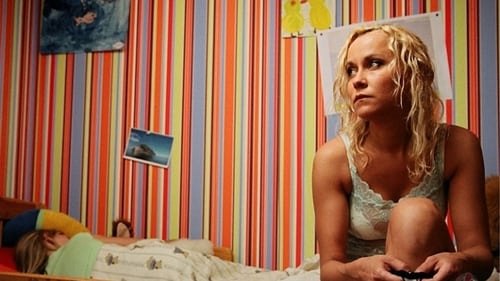
Barons
A runaway bride, a young peasant, mysterious illusionists and a manic investigator become entwined in a murderous affair at a Baltic German baron's manor.

Writer
An investigative look at the life of Latvia’s first foreign minister Zigfrids Anna Meierovics is also a chronicle of the inception of the statehood of Latvia. In a time of deep political turmoil, one man had to make the choices and sacrifices necessary to achieve the legitimacy of an entire country.

Director
An investigative look at the life of Latvia’s first foreign minister Zigfrids Anna Meierovics is also a chronicle of the inception of the statehood of Latvia. In a time of deep political turmoil, one man had to make the choices and sacrifices necessary to achieve the legitimacy of an entire country.

Writer
This is the 3rd film in almost 30 years about the daily lives of the people living in this small street of Pārdaugava. We first met them in the late 1980s when the Soviet Union was on the brink of collapse. We visited them again in the wild 1990s. And now we meet them in 2013, again in a whole different world.

Writer
Using previously unpublished footage shot by amateurs in the era of 8 mm cameras, the film is about the simple human life of those who lived in the Soviet Latvia from 1940 until 1991, a time when a double-moral reigned in society.

Writer
Beatrise is drifting in life. She has based her existence on unsuccessful relationships that have collapsed, like sand castles, one after the other. Forced to re-evaluate things, she realizes that she can only achieve harmony by learning to rely on herself, and not on illusory feelings or words.

Writer
The fates of the students involved in the Latvian educational system reforms and that of their teacher – the screenwriter and film director, Tālivaldis Margēvičs, are unusually intertwined. This leads to thoughts on various, current integration problems and on universal human values.

Director
The fates of the students involved in the Latvian educational system reforms and that of their teacher – the screenwriter and film director, Tālivaldis Margēvičs, are unusually intertwined. This leads to thoughts on various, current integration problems and on universal human values.

Writer
Ten years have passed since we made the film “Crossroad Street”, about a small street in the suburbs of the city of Riga. Now we’ve come back. Perhaps it was a sense of duty, perhaps nostalgia that brought us back – who knows? Perhaps it was both. Daiga, Aldis, Osis – they’re all our people. The first film had an impact on both the filmmakers and the residents of Crossroad Street. We found friends whom we want to meet again and again. Society has become more prosperous, several value systems coexist side-by-side. People often live in these systems as though they were in different worlds that never meet. We felt that the world inhabited by our people is sinking into oblivion, and so we wanted to show that it still has its own turbulence, that Crossroad Street resembles Latvia’s palm – the place where a fortune teller can see the lines of its destiny.

Director
The film’s protagonists Ieva and Apollon are former workers of a collective farm. Once they loved each other passionately. Yet it was in "another" life, the time of kolkholzs. The attempt to revive that love ends up in a tragedy. However the story goes on. The events around their burial are so intriguing that mass media raise them to the level of the United Nations.

Screenplay
Zolitude is inhabited mainly by immigrants. An extremely denational environment, a disorderly everyday life, depressing standard type architecture - these are the problems faced by the film's characters.

Writer

Screenplay
Crossroad Street is a small street just 800 metres long on the outskirts of the Latvian capital, Riga. Its various inhabitants, each with his or her own destiny, daily life and relationships with the neighbours, form a microcosm of the country during the time of the Awakening. The genuine interest of the film's creators in the so-called average person earned a number of international awards, including a European Film Award for best documentary in 1989.

Screenplay
The composer Raimonds Pauls, the artist of the USSR People's Stage, shares his thoughts on life and work. The authors focus on the difficult daily work of a talented artist.

Writer

Writer
A sequel-of-sorts to "Sieviete, kuru gaida?", where the authors focussed on the role of a woman in society. Now their turning their focus on men.

Writer
A film about a woman's role in the society.












